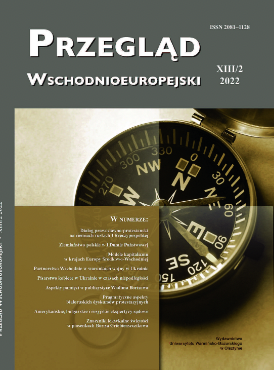Depriving parliament of political significance. Case study of the Federal Assembly of the Russian Federation
Depriving parliament of political significance. Case study of the Federal Assembly of the Russian Federation
Author(s): Nadia Muroslavivna Kindrachuk, Maryana ProkopSubject(s): Politics / Political Sciences
Published by: Wydawnictwo Uniwersytetu Warmińsko-Mazurskiego w Olsztynie
Keywords: depriving the parliament of political significance; Federal Assembly of the Russian Federation; principle of sepa-ration of powers; political system
Summary/Abstract: The political position of the Federal Assembly of the Russian Federation is influenced by a wide range of powers of the head of state. The purpose of the article was to analyse the political position of the Federal Assembly in Russia. The main research problem concerns the question: to what extent the strong political position of the head of state in Russian Federation deprives the parliament of political significance? The main hypothesis is that a wide range of powers of the president in Russia contributes to the large reduction of political position of the parliament depriving it of political significance in the system of the highest state authorities. A theoretical approach to the category of depriving parliament of the political significance and analysis of the interactions between the head of state and the parliament allow us to resolve a research problem. It is worth mentioning that the issue of the political system of the Russian Federation and the constitutional principles of state functioning has been repeatedly raised by Polish and foreign researchers. Within the framework of a short article, it is impossible to name all the researchers and refer to the presented findings. However, to mention only a few, among others, these were Aslund (2007), Bartnicki (2007), Bäcker (2007), Czajowski (2001), Holzer & Balik (2009), Szewcowa (1999), Stelmach (2003), Skrzypek (2014), Słowikowski (2018), Zieliński (1995, 2005), and Zaleśny ( 2010, 2012). Taking into account the research problem posed and the fact that the subject of the research was the systemic position of the Russian parliament and to determine whether and to what extent measures have been taken in Russia to deprive it of its political significance by operationalizing a new category, this translated into the process of narrowing the scope and making a selection of sources. Therefore, the authors, using the method of content analysis, focused mainly on primary sources.
Journal: Przegląd Wschodnioeuropejski
- Issue Year: XIII/2022
- Issue No: 1
- Page Range: 151-164
- Page Count: 14
- Language: English

